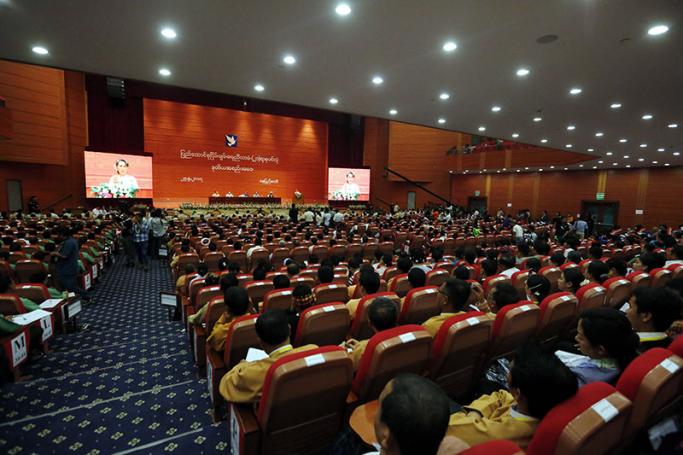On May 29, the high-profile 2nd meeting of the Union Peace Conference - 21st Century Panglong drew to a successful close, having made breakthroughs in advancing Myanmar's peace and national reconciliation. Myanmar's State Counsellor Aung San Suu Kyi said at the closing ceremony that the agreements signed mark a significant step on the path toward "peace, national reconciliation, and the emergence of a democratic federal Union."
However, as the proverb goes, Rome was not built in a day. There are still multiple difficulties facing Myanmar's peace process.
The conference has notably made further progress in terms of its inclusiveness of the participants. Suu Kyi has been advocating an "all-inclusive" peace process and hoped that all ethnic armed forces could participate in the process to promote national peace and reconciliation. The seven ethnic groups who did not attend the first meeting of the conference were all present at the second one. It marks a significant step toward materializing the inclusiveness of Myanmar's peace process.
In addition, conflicts between the Tatmadaw, Myanmar's military forces, and ethnic group forces in northern Myanmar have been eased. These achievements, which also benefited from China's constructive role in urging and promoting Myanmar's domestic peace, have strengthened the confidence of all parties concerned.
Among the 15 ethnic armed organizations present at the event, there are eight signatories and seven non-signatory groups to the Nationwide Ceasefire Agreement (NCA), out of around 20 ethnic groups in Myanmar. Consequently, a number of ethnic armed forces have not yet attended the conference since they hold divided opinions regarding their interests, allocations and negotiation stances with the government and the military, which reflects an issue to be improved upon.
The 2nd Panglong Conference was longer than the first one, signifying that there are still more issues calling for a thorough and extensive discussion. The second meeting has also been repeatedly postponed for three months to mid-May due to a divergence on a number of issues.
The second meeting has made tangible advancements in terms of its friendly atmosphere and topics discussed as well as results generated. At the opening ceremony on May 24, Suu Kyi expressed that the NCA was an acceptable agreement and a main objective of the Conference, which should be followed, more importantly, by political dialogue to achieve eternal peace.
Commander-in-Chief of the Myanmar Armed Forces Senior General Min Aung Hlaing also called for more ethnic armed groups to sign the NCA. Chinese ambassador to Myanmar Hong Liang was also present at the conference and agreed with seven ethnic armed forces in northern Myanmar and other relevant parties on the night of 26th that mutual trust and an enduring ceasefire were essential for making tangible progress toward the peace process.
The 37 adopted principles out of 41, resulting from state and regional level political dialogue, included 12 within the political sector. Notably, some important consensuses are: federal democracy, equal rights of all ethnic groups, decentralization of power to autonomous areas. These achievements are of historic significance in the peace process of Myanmar.
There are still many problems to be tackled during Myanmar's process toward national peace and reconciliation. Moreover, it is still a daunting question as to when the non-signatories will be on board.
However, the conference was an initial step toward a prospective compromise by all parties and the resolution of the conundrum. Ethnic and armed conflicts have plagued Myanmar since its independence in 1948, and successive governments have been unable to resolve it completely. As a result, an instant and complete settlement of hostilities at the moment is not realistic.
The journey of a thousand miles begins with a single step. The conference has laid the foundations for democracy and federalism through peaceful dialogue, and the goal will one day be achieved through persistent and concerted efforts.
The author is an associate professor & PhD, Institute of South & Southeast Asian & Oceanian Studies, China Institutes of Contemporary International Relations.
Courtesy Global Times
You are viewing the old site.
Please update your bookmark to https://eng.mizzima.com.
Mizzima Weekly Magazine Issue...
14 December 2023
Spring Revolution Daily News f...
13 December 2023
New UK Burma sanctions welcome...
13 December 2023
Spring Revolution Daily News f...
12 December 2023
Spring Revolution Daily News f...
11 December 2023
Spring Revolution Daily News f...
08 December 2023
Spring Revolution Daily News f...
07 December 2023
Diaspora journalists increasin...
07 December 2023
Hot air balloon business in Bagan












